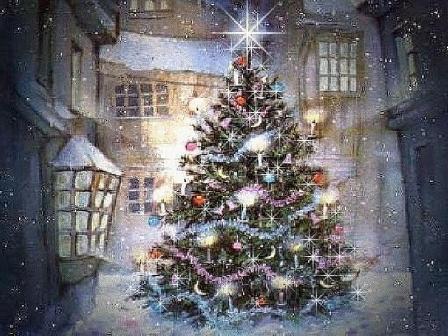Выучите английские слова по теме «New Year» и прочитайте текст о том, как празднуют Новый год в разных странах.

New Year Vocabulary. Английские слова по теме «Новый год»
- Happy New Year – С Новым Годом!
- on New Year’s Day (Eve) – в новогоднюю ночь
- New Year’s tree – новогодняя елка
- Christmas tree — рождественская елка
- evergreen / artificial — живая/ искусственная
- in the morning – утром
- late at night – поздно ночью
- when the clock strikes 12 – когда часы пробьют 12
- New Year’s Party – новогодняя вечеринка
- Snow Maiden – Снегурочка
- Jack (Father) Frost – Дед Мороз
- Father Christmas — Дед Мороз (который приходит на Рождество)
- to see (welcome) New Year in – встречать Новый год
- to look forward to New Year – с нетерпением ждать Нового Года
- coloured lights – фонарики
- glass balls, toys – шары, новогодние игрушки
- a tinsel – мишура
- to hang up – вешать
- to be hung with – увешана
- a candle – свеча
- to light (lit) – зажигать
- to decorate with – украшать
- special decorations – специальные украшения
- to celebrate (all over the country) – отмечать по всей стране
- to congratulate – поздравлять
- to wish each other – желать друг другу
- a wish — желание
- to make a wish – загадать желание
- to come true – сбываться
- to tell fortune – предсказать судьбу
- to explode crackers – хлопать хлопушки
- to make fireworks – устраивать фейерверки
- to send greeting cards – отправлять поздравительные открытки
- a holiday meal – праздничный ужин
- a treat – угощение
- merry – веселый
- midnight – полночь
- a guest – гость
- to invite – приглашать
- to visit smb; to go to see — идти в гости
- popular – популярный
- popular gifts – обычные подарки (a box of chocolate, flowers, books, records, a photo album, A CD, computer games, perfume)
- hand-made gifts – самодельные подарки
- to prepare – готовить(ся)
- to put up – ставить, устанавливать
- to put up a New Year Tree – ставить елку
- to represent – представлять, символизировать
- to listen to the speech of the president – слушать речь президента
- relative – родственник
- to stay up late – засиживаться допоздна
Эти английские слова (New Year Vocabulary) помогут вам рассказать о том, как вы собираетесь отмечать Новый год. А вот небольшой текст на английском языке про Новый год.
Text «New Year Celebrations»
Every country has its national holidays, but there are also holidays that are common for many countries. New Year’s Day is the first holiday of each New Year. In Russia it is the most popular holiday, but in the West people pay more attention to Christmas.
New Year is always connected with our new hopes and dreams. Everyone hopes that next new year will be better than the last one. As usual people make New Year Resolutions, they promise to start doing morning exercises, to eat healthier food. Unfortunately people don’t always keep them.
The celebration of this holiday begins on New Year’s Eve, that is, on the 31st of December. At home people stay up until midnight and much later. They light coloured lamps on New Year Tree and have late dinner with champagne. Sometimes they just watch TV or go out for late walk. Everybody gets presents.
In Scotland New Year’s Eve is called Hogmanay. Also the Scottish have the custom of First-Footing.
Most differences in celebrating New Year are connected with a meal or special food. For example, in Switzerland special bread, rich in butter, eggs and raisin is baked and a roasted goose is cooked. In Spain there is a custom to eat 12 grapes at midnight. In Greece some people play cards believing that they will be lucky the whole year if they win. In Russia the traditional dish for the holiday is “Russian salad”(оливье).
- Английские слова по темам для разных уровней
- Самостоятельное изучение английского языка на сайте EnglishInn.
Здравствуйте! Один вопрос — почему Jack Frost – Дед Мороз, а не Father Christmas? Спасибо за Вашу работу!
Здравствуйте, Камила! Father Christmas — это Рождественский дед. В англоязычных странах отвечают Рождество, а не Новый год. Jack Frost — это Дед Мороз (ледяной Джек). Но Вы правы, добавлю в словарь обязательно. Спасибо!